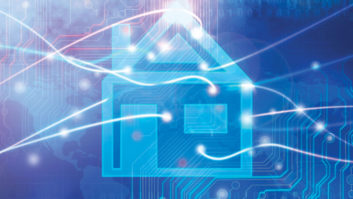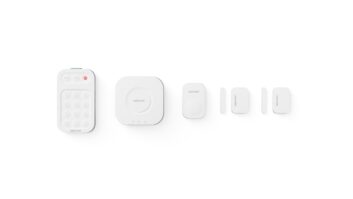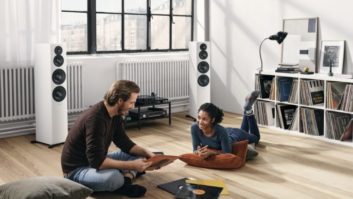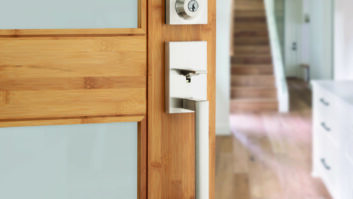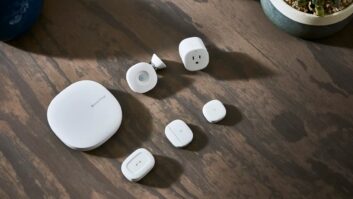
From security systems and thermostats to microwaves, coffee makers and other kitchen appliances, appliance retailers and builders today help to outfit homes with every smart technology device imaginable to create the ultimate connected home experience. And the demand from consumers is expected to increase throughout 2022.
Smart technology has become a staple of the modern home in the U.S., and other countries are starting to make the shift as well. According to a survey from Hippo, a national property insurance company, it’s predicted that 15% of households worldwide will have a smart home device installed by 2023, with convenience being the most significant factor consumers expect from smart home device usage.
Even though smart home devices can make everyday tasks much more convenient to accomplish in the home, consumers will still get easily frustrated if these devices are not set up properly or not connecting to their home’s network hubs. Builders and appliance retailers need better resources to offer support services for their end-user customers.
The Right Support Experience Builders and Appliance Retailers Can Provide
Whether it’s the latest high-tech devices on the market or the typical TVs, laptops, tablets and speakers, consumers need to literally feel right at home with their devices, and it all starts with having the right support and protection. Just providing the smart device isn’t enough for the consumer to feel completely satisfied, and troubleshooting and repair issues will still take place and cause major headaches for the technically challenged.
Instead of consumers turning to the manufacturer of the device for technical support and having to wait tirelessly for someone to respond to the request, builders and appliance retailers should consider supplying tech support themselves.
One way to provide tech support and protection is to utilize an automated central hub that any smart homeowner can access and get the help they need 24/7 for common technical issues – such as devices not connecting to the Wi-Fi, or how to download the corresponding app and add the device to the ecosystem.
A step up in service, builders and appliance retailers can alleviate constant device problems by aligning themselves with tech support partners, such as Pocket Geek Home, who can offer the necessary support services that complement the connected devices they are leveraging to attract homeowners. Even though smart home technologies are expected to work as they should before the homeowner moves in, concerns and risks with the devices will remain that only a professional tech support provider can understand. By partnering with or providing a tech support service offering for every device, builders and appliance retailers will be able to help customers and homeowners instantly, and provide new revenue opportunities while highlighting the customer experience.
Another reason to go with a tech support provider is to address one of the major concerns consumers have with smart home devices: Security. Unfortunately, consumer privacy and the vulnerability to hackers or burglars can remain if devices, like security cameras, are not connected properly. For example, some smart devices come with a default password, and, if not changed when doing the initial setup, hackers could gain access and view or even steal personal information. This is an area tech support providers can help retailer and builder customers be safer rather than sorry.
What Does This Mean for the Future of Smart Homes?

With today’s mobile devices and tech gadgets filled with features that we couldn’t have dreamed of ten or twenty years ago, it has become increasingly difficult for consumers to decide what products are right for them and their home. For instance, there are many who prefer to use Amazon’s Echo smart speaker while others like Google’s Nest smart speaker better. However, what if the two separately branded devices were included by the builders and appliance retailers in the same home?
The goal of the future smart home is to make every smart device available compatible with each other, as the smart home system that the consumer chooses to use in their home needs to work effectively with all the other devices they have. Whether it’s sending voice commands through Amazon Alexa, Google Assistant, or another artificial intelligence solution, they need to work with other smart devices, such as lights, thermostats, TVs, and more. Just imagine how the homeowner would feel if the builder and appliance retailer put in a Google Assistant to prompt the kitchen lights to turn on, but the lights only work with Amazon Alexa.
The new standard in the future of smart homes will be allowing the consumer to choose the devices they want based on the initial voice prompt system of their choice to then go about the other devices in terms of features and price, rather than worrying about the compatibility.
Although this would streamline the process for builders and appliance retailers implementing these devices and making sure they work, troubleshooting will still be complex. But if they offer the consumer the right tech support provider that can help fix their devices at any time, the dream of a fully functional smart home is within reach.
About The Author
Scott McKinley is AVP, Premium Technical Support for Pocket Geek Home. For more information visit www.pocketgeekhome.com.
See also: Another View: The Biggest Lie In Retail




